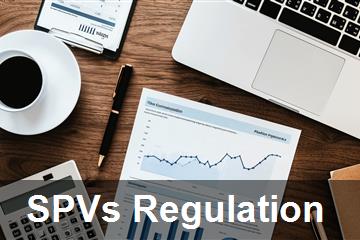
06 nov 2024
The OECD's recent guidelines on the Global minimum tax (Pillar 2) have significant implications for securitization vehicles (SPVs). The traditional role of SPVs in refinancing loans while isolating credit risk is reaffirmed, but the potential impact of GloBE rules on SPVs, especially regarding consolidation and tax liabilities, is a concern.
The document suggests that SPVs should be structured to ensure minimal profit, thus avoiding substantial additional taxes.
However, national interpretations, especially in light of recent synthetic securitization approvals, may differ.
The Italian framework, for instance, allows SPVs broader operational scope, which may conflict with OECD's guidelines.
A careful assessment is needed to determine the applicability of GloBE to SPVs, balancing regulatory compliance with operational efficiency.

The OECD's recent guidelines on the Global minimum tax (Pillar 2) have brought to light several considerations for securitization vehicles (SPVs). Traditionally, SPVs have been used to refinance loans while isolating the credit risk from the originator, often being described as 'bankruptcy remote'. Typically, these SPVs are owned by an unrelated third party, which prevents consolidation with the originator's group, a factor that could have significant implications under GloBE rules.
The issuance of debt instruments by SPVs, except in synthetic securitizations where they become part of derivative contracts, is a key feature.
The payment flows from assets are used to service these debt instruments, with SPVs designed to generate negligible profit, ensuring excess liquidity is returned to the originator.
This structure is intended to avoid substantial additional taxes under GloBE rules, even if the minimal profit is taxed.
However, the Italian legal framework, under Law 130/99, allows SPVs a broader operational scope, including granting loans and subscribing to securities, which may not align with OECD's guidelines.
The Italian law also recognizes 'separate assets' for civil and tax purposes, focusing only on the SPV's limited assets and economic results, not the larger amounts involved in securitization.
This discrepancy raises questions about the coherence of OECD's guidelines with national practices, especially concerning coverage operations and synthetic securitizations.
Therefore, a thorough evaluation is necessary to determine whether SPVs should be subject to GloBE, considering the potential impact on financiers and the operational efficiency of these vehicles.

